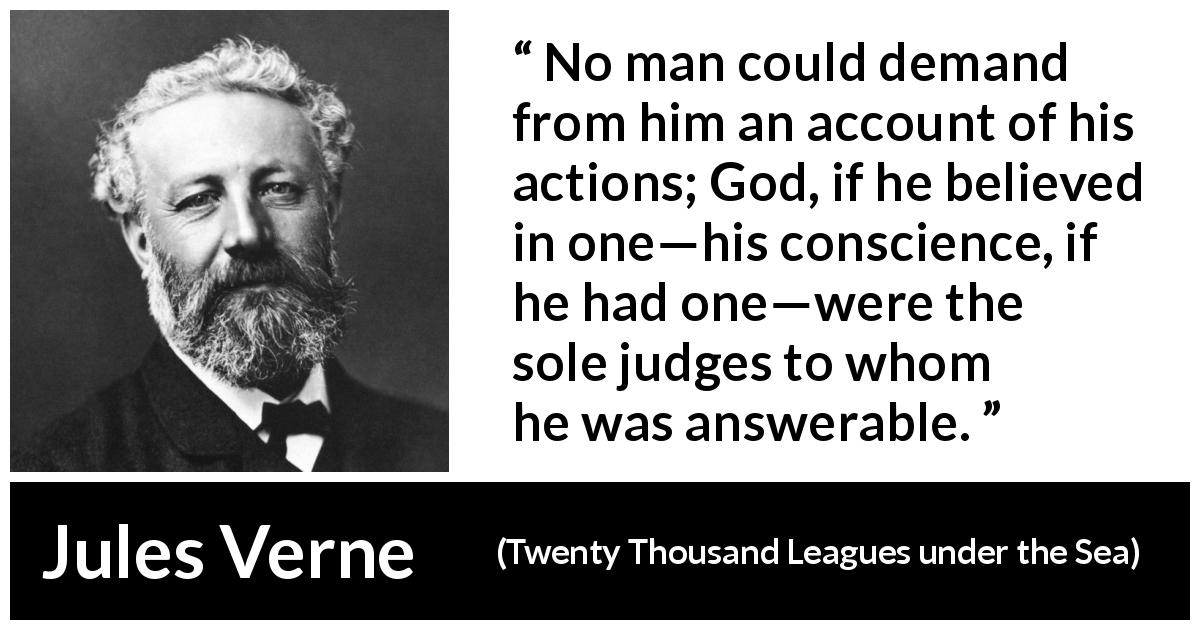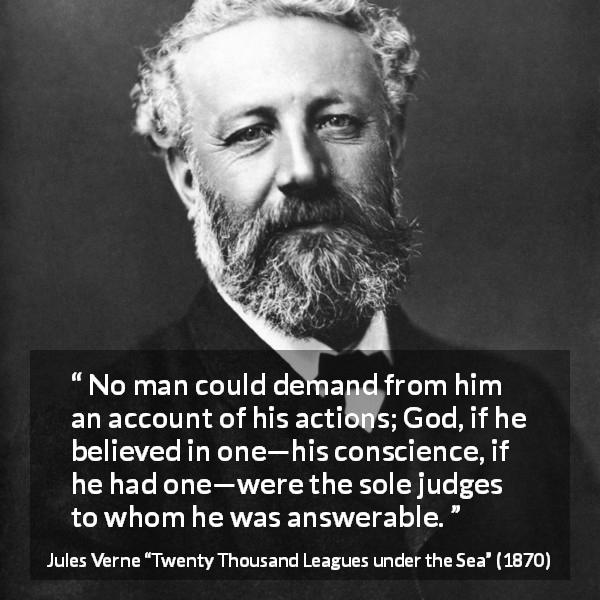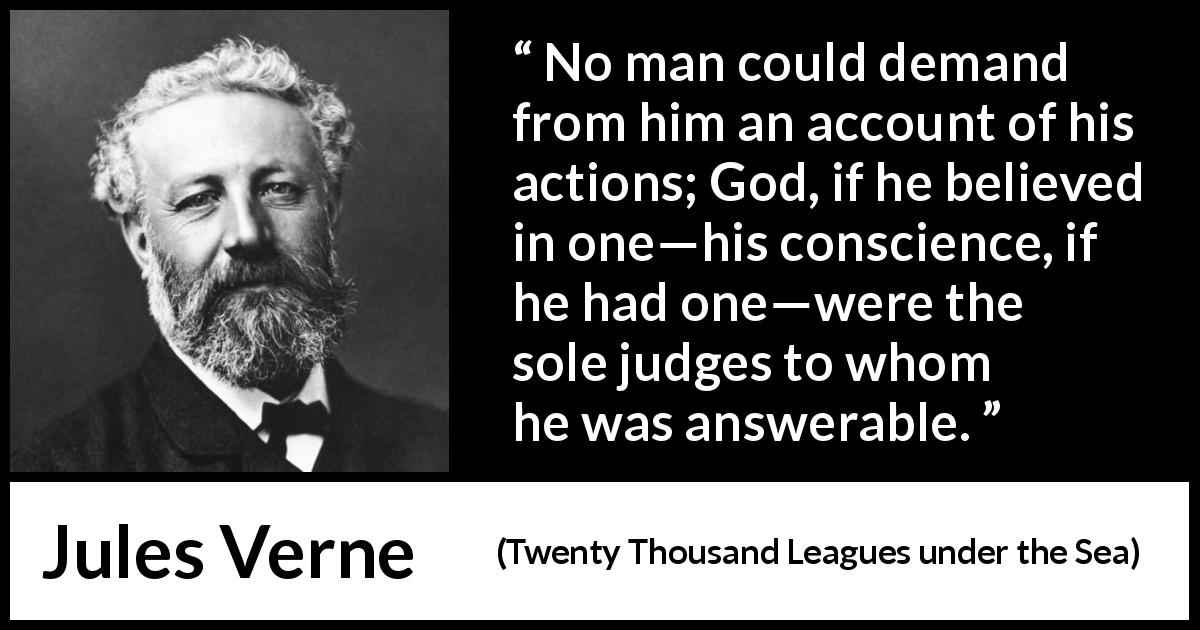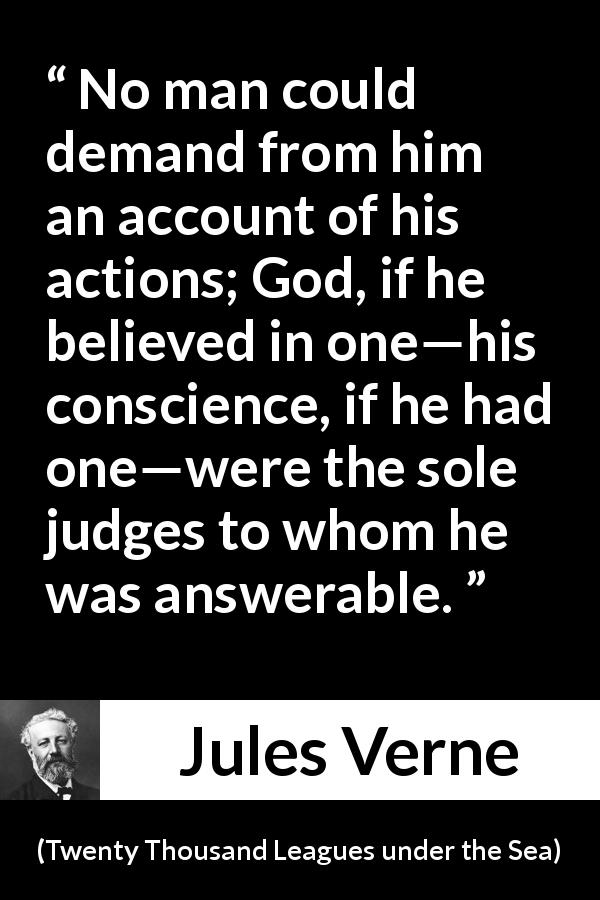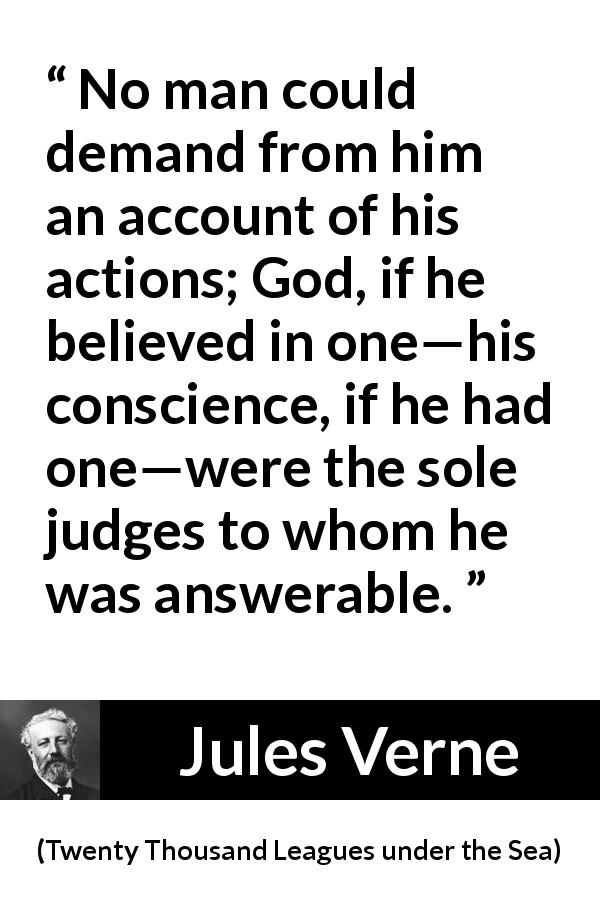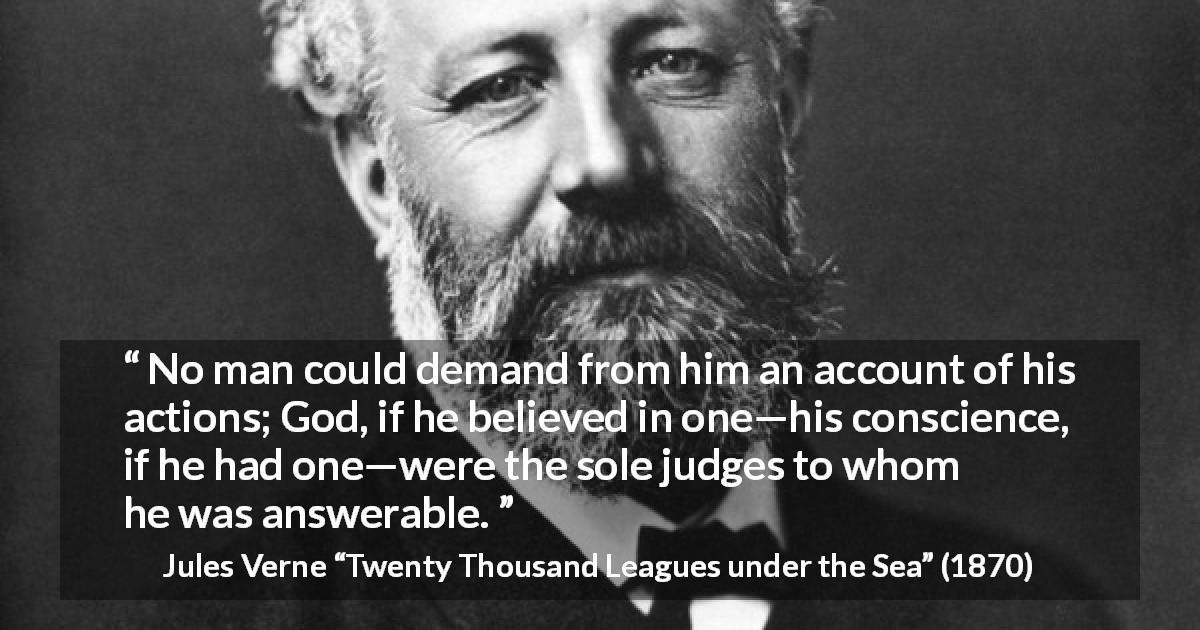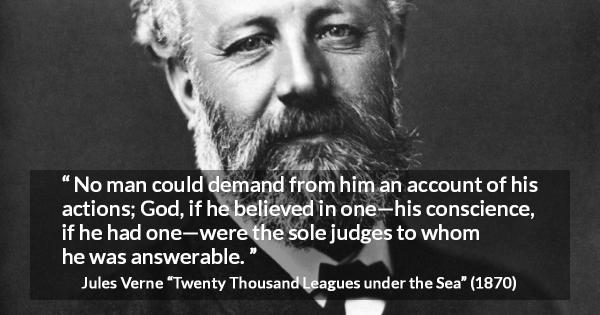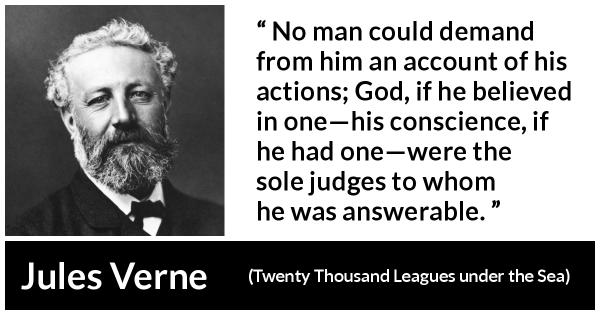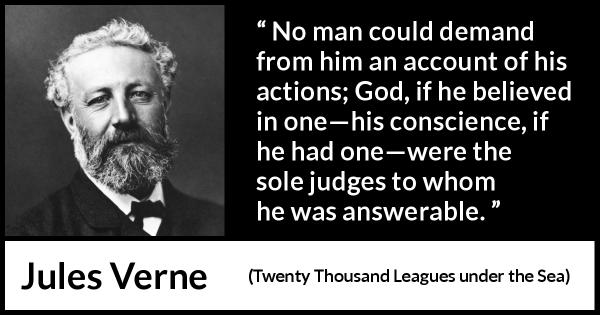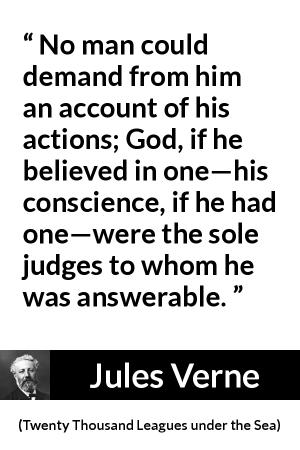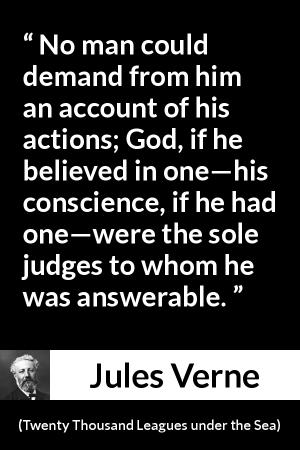“ No man could demand from him an account of his actions; God, if he believed in one—his conscience, if he had one—were the sole judges to whom he was answerable. ”
Jules Verne, Twenty Thousand Leagues under the Sea (1870). copy citation
| Author | Jules Verne |
|---|---|
| Source | Twenty Thousand Leagues under the Sea |
| Topic | conscience God judgement action independence |
| Date | 1870 |
| Language | English |
| Reference | |
| Note | Translated by Lewis Page Mercier |
| Weblink | http://www.gutenberg.org/files/164/164-h/164-h.htm |
Context
“Who then would dare to pursue him at the bottom of the sea, when, on its surface, he defied all attempts made against him?
What vessel could resist the shock of his submarine monitor? What cuirass, however thick, could withstand the blows of his spur? No man could demand from him an account of his actions; God, if he believed in one—his conscience, if he had one—were the sole judges to whom he was answerable.
These reflections crossed my mind rapidly, whilst the stranger personage was silent, absorbed, and as if wrapped up in himself. I regarded him with fear mingled with interest, as, doubtless, OEdiphus regarded the Sphinx.” source
What vessel could resist the shock of his submarine monitor? What cuirass, however thick, could withstand the blows of his spur? No man could demand from him an account of his actions; God, if he believed in one—his conscience, if he had one—were the sole judges to whom he was answerable.
These reflections crossed my mind rapidly, whilst the stranger personage was silent, absorbed, and as if wrapped up in himself. I regarded him with fear mingled with interest, as, doubtless, OEdiphus regarded the Sphinx.” source
